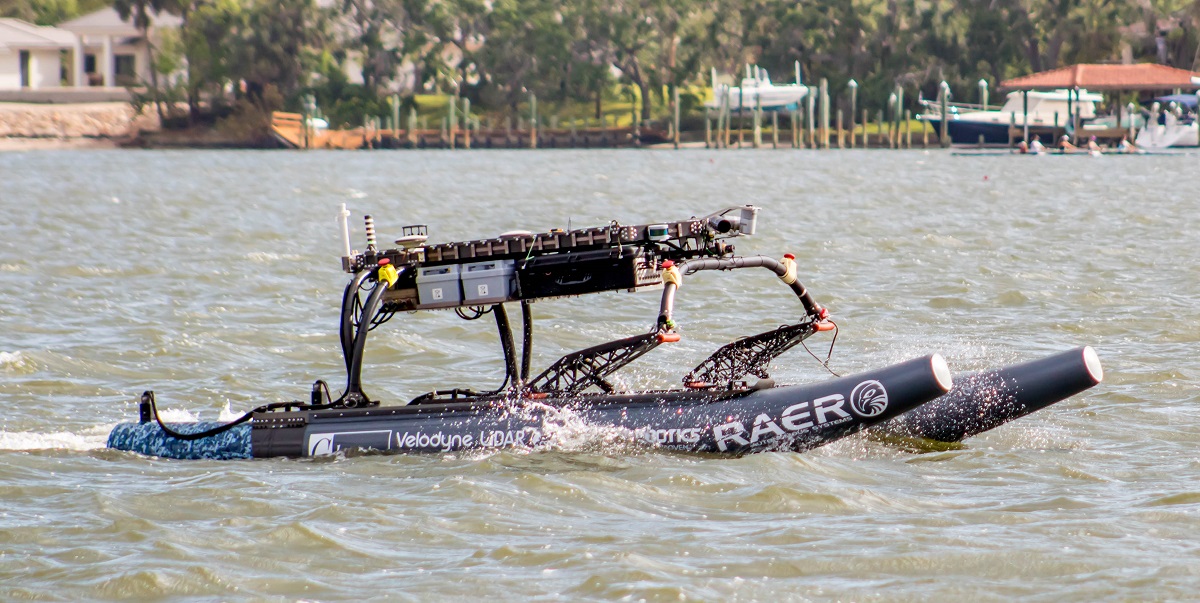Embry-Riddle Receives $900,000 Research Grant to Advance Unmanned Surface Vessel Capabilities

The U.S. Office of Naval Research has awarded a five-year, $900,000 research grant to Embry-Riddle Aeronautical University to develop advanced communication, perception and energy systems for unmanned surface vessels (USVs).
Eric Coyle, associate professor of mechanical engineering on the Daytona Beach Campus, will serve as principal investigator for the project. Coyle will work with his colleagues Brian Butka, associate professor of electrical engineering; Patrick Currier, associate professor of mechanical engineering; graduate students Stephen Cronin, Marco Schoener and David Thompson; and undergraduate student Jefferson Romney.
Developing stealthier ways for unmanned vessels on the ocean’s surface to communicate with unmanned underwater vehicles such as submarines will be one focus of the research initiative.
Typically, the researchers explained, underwater communication technology relies on low bandwidth and expensive acoustic devices. To address this issue, the researchers are investigating the potential use of technology normally used on these unmanned systems as emitters and receivers. The goal is to characterize how best to communicate in this manner, and to assess the data rates that can be achieved.
Researchers will also explore strategies to enhance the situational awareness of USVs through short- and long-range detection, classification and speed estimation of maritime objects using multi-model sensing.
Further, the team will develop hybrid energy system architectures in an effort to increase the energy efficiency of USVs so that they can remain on station longer. This work will involve finding ways to balance renewable sources such as wind and solar power with traditional energy sources such as batteries and diesel generators.
Testing and evaluation of the proposed communication, perception and energy systems will leverage Embry-Riddle’s Minion research platform – a 16-foot autonomous research vessel equipped with high-performance computing, an autonomous sensor suite, two brushless thrusters and substantial battery capacity.
The university will bring extensive robotics expertise to the new research project.
“Embry-Riddle is one of the few schools to compete in the Maritime RobotX Challenge, Roboboat and RoboSub competitions, which are collegiate competitions sponsored by the Office of Naval Research and the Association for Unmanned Vehicle Systems International (AUVSI) Foundation,” the researchers noted in their grant proposal. “Furthermore, Embry-Riddle is the only school to compete in the AUVSI competitions which cover the maritime, air and ground domains.
The group noted that Embry-Riddle has been a two-time winner of the Roboboat competition, a fourth-place finisher in the 2016 Maritime RobotX competition and a top 10 finisher in five of the six 2016 competitions.

 Ginger Pinholster
Ginger Pinholster